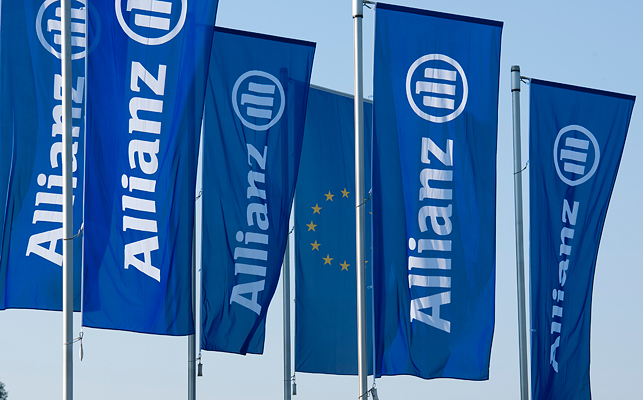- Economic pressures are exacerbating the global health crisis, with income inequality contributing to the divide in health outcomes between low- and high-earning individuals.
- The cost-of-living crisis is affecting people's ability to care for themselves, with cost emerging as the biggest barrier to people taking better care of their health.
- Health extends beyond healthcare, with mental health, physical health, social health, and community livability being critical aspects of overall wellbeing.
- Trust is an important factor in overall wellbeing, with high levels of trust linked to increased security and cooperative attitudes. Forging relationships instead of reinforcing divisions is crucial to address the differing levels of trust in the health ecosystem.
- According to a report from Allianz Partners, better prevention, patient empowerment, and digital health are three vital mindset shifts in healthcare that could help address health issues across the health ecosystem.
Financial worries fuel a growing health crisis
In January 2023, the Edelman Trust Barometer revealed that nearly one-fourth of the 28 surveyed nations were severely polarized due to a lack of shared identity, distrust in government and media, societal fears, economic pessimism, and a sense of systemic unfairness. These factors are also seen in the split between low- and high-earning individuals' health outcomes, where trust in the system predicts who follows what advice. The countries with low economic optimism, such as the UK, Germany, France, and Japan also have low optimism about their personal health improving.
As more and more people were forced to make choices between heating, eating or getting health treatments this winter, the anger about the fairness of the system seems to have bubbled to surface. Cost has emerged as the biggest barrier to people taking better care of their health, with inflation being the top issue (77%) that negatively impacts health in many countries. For many people, healthy food, treatments, and good health care have become unaffordable (63% for lower-income people versus 48% for higher-income people).
Health goes beyond healthcare
Edelman’s report reveals that health as a term reaches beyond healthcare: when thinking about what healthy means, respondents often also think about mental health (91%), physical health (88%), social health (having someone to talk to or having someone who cares for you; 83%), and community livability (79%).
The link between socioeconomic status and health is more complicated and encompasses more than just access to healthcare and living conditions, as was also demonstrated by the research from the psychologist Nancy Adler and her colleagues of the University of California, San Francisco. As it turns out, the psychosocial consequences of a low socioeconomic status, such as feeling poor, are just as predictive of health problems as objective measures such as income level. Inequality (poverty amid plenty), rather than just poverty, can have even worse effects on health and quality of life.
If we loop trust into this picture, we can easily see how trust or the lack of trust can contribute to the overall wellbeing of people. High levels of trust mean that people feel secure, have less to worry about and see others as cooperative rather than competitive. A number of studies from the U.S. have linked trust to health and proven that people with high levels of trust live longer.
Key takeaways:

Forging relationships instead of reinforcing divisions
Currently, there are two distinct groups when it comes to trust in the health ecosystem: those who trust it and those who do not. People who trust the health ecosystem tend to rely on national health authorities and their doctors for health information. On the other hand, those who distrust the health ecosystem rely more on their friends and family, as well as their employers for health information, as they tend to trust information that is local to them.
To effectively address both groups, it is important to treat them with respect and give them the opportunity to ask questions and learn. Furthermore, it is important to give equal weight to peer voices as well as expert opinions: educating and empowering each other is our shared responsibility.
When it comes to keeping people healthy and caring for their wellbeing, the report found that 55% of employees felt that their employers were successful in keeping them healthy. Furthermore, a majority of employees (72%) trust their employers to handle health concerns appropriately.
Understanding the mindset shifts required to improve health and healthcare
Many people expect businesses to take on an active role in providing health solutions and filling the gap left by governments. A report published earlier this year by Allianz Partners identifies three vital mindset shifts in healthcare that could help address these issues across the health ecosystem: better prevention, patient empowerment, and the future role of digital health.
As one of the key mindset shifts, the report emphasizes the need to prioritize preventive measures, such as dietary changes, reducing smoking and alcohol consumption, to lower the risk of non-communicable diseases (NCDs).
Another important mindset shift is recognizing that patient empowerment is crucial in improving their experience and encouraging behavioral changes. To increase patient proactivity, health providers need to better understand the barriers that individuals face and meet patients where they are, such as influencing them through local communities and family groups. With high levels of distrust, the task of all those working in health is to forge relationships, not reinforce divisions.
Health systems must also continue to embrace digital health as a third mindset shift, to promote preventative healthcare and patient engagement. The report highlights the importance of focusing on the unique potential of digital health, such as real-time data collection, and addressing major barriers, such as access disparities.
“With health systems around the world dealing with acute challenges, we can’t afford to deprioritize chronic conditions, or the behavioral changes that reduce many of the risks. We need to deepen our understanding of the issues and potential solutions to the slow-motion health crisis that’s unfolding – empowering patients to take greater responsibility for their health and by making better use of the new technology now available,” said Paula Covey, Chief Marketing Officer for Health at Allianz Partners.
About Allianz
** As of December 31, 2023.


